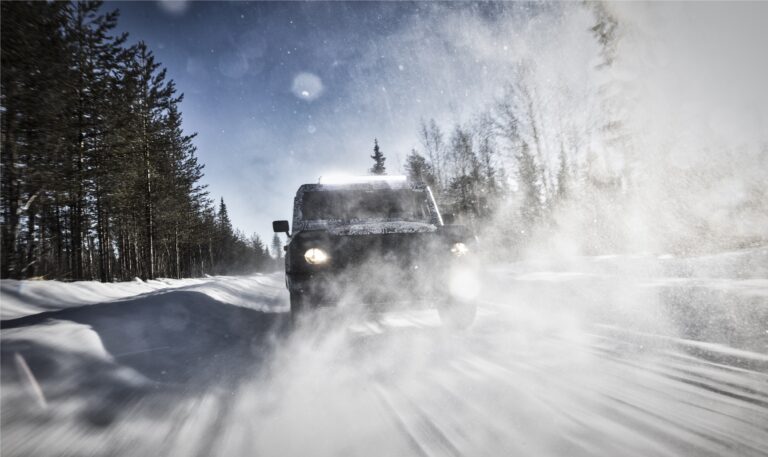Baraza,
I understand that turbo-charged cars perform better than naturally aspirated engine ones. So, what exactly is the effect of a turbocharger on a car? Does it increase the horsepower, stability, or pick-up speed? And does a turbo-charged Nissan B13 stand a chance against an NA Subaru Legacy?
And do tuned engines perform better than non-tuned ones? A friend told me that tuning my car would reduce its engine life, whether tuned professionally or unprofessionally, does that statement hold any water?
About turbo vs NA, the general rule is that turbo cars are much quicker, and yes, the turbo does increase the power output and also improves acceleration, but it does nothing for stability. If anything, it may compromise stability if the chassis is not designed for high horsepower applications, especially for FF (front engine, front wheel drive) platform cars by creating torque steer and push-under (power understeer).
The B13 vs Legacy fight depends on many things. If the B13 has a two-litre engine and is running 1.8 bar boost pressure in the turbo, against a 1.8-litre NA Legacy, the Legacy will see dust. However, a light pressure device in the B13, coupled with a 1.2 or 1.3-litre engine, pitted against a 2.5-litre NA Legacy will not change anything: the Legacy will still cane the Nissan.
The statement about the lifespan of tuned engines holds water. Tuned engines undergo more stress than the manufacturer intended, and even then, running those kinds of temperatures, pressures, and high-rpm inertia moments on rotating and reciprocating parts will ensure the early demise of any given engine. The best example is race cars. Some go through one engine per race.
—————-
Baraza,
I have a Toyota 100 that I have fitted with Safari Rally tyres and I have been receiving negative comments from people on how they will affect the car. So, tell me, do these tyres affect:
1. Fuel consumption,
2. Stability of the car,
3. Engine life span,
4. Ball joints and bushes?
Also, is it true that speeds of 80-120 km/h improve fuel economy?
Lastly, the car wobbles when braking, especially at high speed. What could be the problem?
Alex
Before I answer, what Safari Rally tyres are those? Tarmac, gravel, or snow (they vary greatly in several parameters)? Anyway, here goes:
1. Yes, they do affect consumption, slightly, but noticeably over considerable distances.
2. Yes, the tyres will affect stability, a lot. If you use the wrong type of tyre for a given surface, the car will skid, slide, spin its tyres (or itself), and generally becomes impossible to drive, like using snow tyres on a tight tarmac course, or using racing slicks in the mud. This is for directional stability.
For gravitational stability, tyres with stiffer sidewalls (ideal for tarmac) will not work well in the soft mud, which usually requires one to deflate one’s tyres so as to collapse the tyre sidewalls and increase the “footprint” area to aid in buoyancy.
So it follows that conversely, soft sidewall mud tyres used in a tarmac situation that calls for hard cornering will see the sidewalls folding, bending, and/or stretching, making the car dangerously easy to tip over.
Just so you know, there is a calculation as to what point a car, any car, even a Ferrari, will roll or tip over on its side. And part of that calculation embodies the gripping tendencies of the tyres and the sidewall stiffness.
3. No, not really.
4. To some extent yes, depending on your cornering speeds.
About fuel economy, generally, yes but many other factors come into play.
The wobbling could be because of one of several factors. Either the ABS and/or EBD and/or stability control systems are working very hard to brake the car in a straight line or the braking forces on each wheel are not equal (for cars without the fancy electronics).
—————
Hi,
I am thinking of importing a seven-seater, like a Toyota Isis or Nissan Lafesta, which run on VVT-i and VVL, respectively. Please advise on the best option, seeing as we cannot all buy Toyota Wish, Noah, or Voxy.
Yes, it is true, we cannot all buy a Wish or a Voxy. Cars like Isis and Lafesta should broaden the scope. There is a risk to pioneering a model change like this, though, and that is the lack of support infrastructure. At the garage, the mechanics will tell you “We have never worked on such a thing before,” while at the spares shop the salesman will ask you whether you are sure the Isis is a Toyota or a Honda or even a Hyundai.
Cue the email asking for assistance.
—————
Hi Baraza,
There has been an increase of this weird black colour on cars, I think it is called matte. What does the law say on the changing of a car’s colour and what does this change mean when it comes to maintenance costs? Then, do some people not know that some cars should not be repainted? There are Touaregs and X6s with these colours!
Stevie
You seem to be really bothered by the matte paint. Unfortunately for you, I am a fan and will paint my car matte black first chance I get. Also when I have a car to paint.
The law was (and I am guessing still is) very clear on changing the colour of one’s car: Go ahead, nobody is stopping you. It is just that you have to let the registrar know that the previously white Volkswagen Touareg KBR *** S now looks like it fell into a tin of black shoe polish and was not wiped clean, so can I please have a new logbook reflecting these changes? And no, the vehicle is not stolen.
Matte paint has some downfalls, especially in terms of maintenance. For one, you cannot take it to those automated car wash setups, the ones with the rotating brushes, because it will ruin the matte effect. And once a bird relieves itself on the bonnet, it is back to the paint shop for a whole new coat.
————-
JM,
My car (a two-door, 2800cc Pajero) is having hiccups that are now beyond me. First, she started with shaking whenever I tried to start her up.
So I changed the fuel filter (several times now) and serviced her. She behaved for two days, then started acting up again.
I serviced the fuel injector and even cleaned the tank. She again behaved for only a week or so. It is now got to a point where she cuts fuel supply when going up a hill and stops.
When I prime her, she gets back on the road like there was no issue. The mechanics are pinning the problem to the fuel injector and the pump, which I have serviced. What do you think is causing all this?
Kenn
Quick question, do you have a girlfriend, and if yes, what is her take on your referring to your car in feminine third person singular pronouns?
Anyway, when you talk of priming, my mind goes to the fuel pump, so I am guessing that it is the culprit here. Maybe it is due for replacement? Another suspect might be the air filter. Check the element and make sure it is not clogged. Also confirm that the fuel lines are not blocked; you could be focusing on the major devices and yet a simple blockage is the source of all your woes.
——————
Dear Baraza,
I am a first time car seeker and interested in importing either a Toyota Avensis or Subaru Legacy. What are their estimated prices and the general cons and pros about these cars? Consider that I love going to see my parents near Mau once every two months and carry away about 50 kg of food. What other cars compare with these two?
Lastly, how can I know which Japanese dealers are reliable? Do these dealers tamper with cars’ mileage, the way some of the local dealers do?
Langat
The two cars are good and the price range hovers around a million shillings for both, give or take a hundred grand in either direction.
Pros: The Subaru is fast, looks good, is spacious, and its reliability has gone up several steps. You also get standard AWD and the option of a manumatic transmission, that is if you buy a tropicalised version. The Avensis offers even more space, is comfortable, has outstanding economy, is reliable, and has understated good looks.
Cons: The Subaru has poor ground clearance if you buy a Japan-spec version. It is also uncomfortable and crashes over road imperfections (worse with low profile tyres). The economy will go to the dogs if you step on it. The manumatic transmission is a four-speed and using it makes the driver feel the need for a fifth gear. A turbo version might put you in trouble if you are not experienced behind the wheel. The Avensis is plain and boring to drive, it lacks any sense of urgency or sporting feel. D4 engines might go pfft, especially the D4D.
Other cars to look at might be the old model Caldina, Mitsubishi Airtek, Primera estate (eugh!) or even the Mark II Blitz.
The reputation of dealers in Japan, I am sorry to say, is not my problem, at least not anymore. I tried to steer Kenyans away from the careless and thoughtless importation of cars from locations and individuals unknown, and got insulted in the process. So now I watch them suffer and wait for the inevitable email asking for help.
—————-
The Freelander vs the two-door Pajero
Hi Baraza,
I am a bit of an old school guy who loves short wheel base 4X4’s because of the great ground clearance and ease of manoeuvring. I am really not into the comfort, speed, and style of modern saloons (power windows, automatic transmission, heating etc). I am more interested in strong vehicles with few electronics that can last for years, like the small Land Rover 90 and the two-door Land Cruisers; I have seen Series III Land Rovers from the 70s still on the road.
1. I am interested in the Land Rover Freelander, although I have heard that it has issues with heating, is this true? From what I have seen, a used one from about year 2000 is affordable and I can handle the 1800cc engine.
2. Another vehicle of interest is the Land Rover 90 TDI, my number one choice. But it is completely unaffordable, so let us not even discuss it.
3. Car number three is the two-door Mitsubishi Pajero from around 1997/98. I have seen and driven some pretty clean and affordable ones, although I have also heard that they may have some innate engine problems like heating and blown turbos, is this true? What are the disadvantages of this vehicle?
4. The last choice is the two-door short wheel base Land Cruiser, which is a second choice from the 90 TDI, although it is also a bit costly.
Now that you have got a feel of what vehicles I prefer, please compare between the Freelander and the Pajero, (advantages and disadvantages) since the Land Cruiser and the 90 TDI are out of my league for now.
Jon
The Pajero suffers from turbo and injection problems, which could sometimes lead it to smoke badly and lose power when driving. The turbos also fail with some regularity, but this I relate to the uninformed owners and sketchy development of early turbodiesel engines (they have since improved). Installing a turbo timer might alleviate this problem a bit longer.
The Freelander is pretty and is something of a lady’s car, but ignore that. The issue with the original versions was build quality, like heating vents covered in upholstery, so dealers were asked to apply a sharp knife to the suede so that the demister could work.
The manual gearbox was also popping out of gear in long left hand corners and the output shaft transfer case sheared, rendering the car 2WD, with the unsuspecting owner still thinking he had a 4WD car. The power steering pump also had problems.
These issues were exposed back in 2000 when internal Land Rover documents were leaked; the Freelander suffered from 136 faults. This does not even include poor torsional rigidity and unsatisfactory wheel articulation.
Both cars will go off road, but the Pajero will go farther off, ford deeper rivers, climb taller rocks, and plug the clag with more aplomb. The Freelander is more of a lifestyle car than a proper off-roader and will be better to drive on tarmac and murram roads.
Save a bit more and go for the “adults”, especially the Land Cruiser.
——————
The X3 vs the Tiguan
Dear Baraza,
I would like to buy a comfortable, stable-to-manoeuvre-at-high-speed, 2500cc small classy 4WD (I do off road about 15 per cent of the time) car. Then, “when I grow up”, I will go for its bigger sibling, depending on the pick. In this regard, please compare and contrast the BMW X3 against the VW Tiguan and BMW X5 against the VW Touareg to help me decide.
Wekesa
I am only familiar with the first generation versions of the four vehicles. However, I will soon be able to report on the new lineup of BMW X cars. So my answer will be based on the old versions.
The X3
It did not look too good, its price was hard to justify (in other words not good value for money and felt cheap), it struggled in tough terrain, and was thus easily beaten by rivals as a sensible purchase. It was hard to find plus points on this car.
The Tiguan
Unfortunately lady-like, but again VW’s strengths appear in terms of refinement and build quality. Looks suspiciously inept if something worse than paved is thrown at it. A good looker but falls short in terms of sheer gravitas. Blame the badge on the bonnet.
The X5
The exact opposite of the X3’s shortfalls. It was and still is a worthy, or even better, alternative to the Range Rover.
The Touareg
Bland design, pointless V10 TDI engine option, the 3.2 V6 was thirsty and the gearbox operated on a glacial time scale. Also heavy, but it handled really well on road and the interior is typical VW: excellent build quality and feels robust and like it will last for ever.
Except for the Tiguan, there are new versions of all these other cars, sadly none of which I have had a chance to try yet. If and when I do, I will be glad to share.




